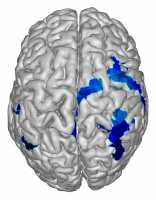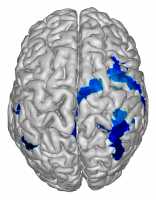
17 Apr Short Rest Periods Are Performance Enhancers
MedicalResearch.com Interview with:

In a study of healthy volunteers, NIH researchers found that taking short breaks, early and often, may help our brains learn new skills.
Courtesy of Cohen lab, NIH/NINDS
Leonardo G. Cohen, M.D., Ph.D., Senior Investigator
Marlene Bönstrup, M.D.,
Postdoctoral fellow in Dr. Cohen’s lab
NIH’s National Institute of Neurological Disorders and Stroke
MedicalResearch.com: What is the background for this study? What are the main findings?
Response: Learning a new skill is typically divided into online (during practice) and offline (after practice has ended) components. Particularly motor skill learning occurs to a considerable degree offline, meaning that performance further improves even after practice has ended. A single practice session itself however, is typically divided into short (level of seconds) periods of practice and rest. In this study, we set out to investigate the contribution of those short periods of practice and rest to the learning during a practice session (i.e. online learning). We found that during early motor skill learning, when most of the total learning occurs, performance improvements actually precipitate during short periods of rest whereas during practice periods, performance mostly stagnated. We found a signature of neural activity predictive of those performance improvements during rest: The lower the beta rhythmic activity in the parietofrontal regions of the brain during those short periods of rest, the higher were participant’s performance jumps.
MedicalResearch.com: What should readers take away from your report?
Response: Consolidation of a memory is typically considered to take hours or days to evolve. Our data reveal performance enhancements during rest that point to consolidation processes at the level of seconds. This is much faster than previously thought. These findings raise the question, if online learning itself occurs to a considerable degree via offline processes.
MedicalResearch.com: What recommendations do you have for future research as a result of this work?
Response: We are currently investigating the contribution of short rest periods to motor skill learning in more detail. What are optimal practice and rest period durations for motor skill learning? Is there further experimental support for consolidation at the level of seconds? What may be happening in the brain during the low beta rhythmic activity that facilitates these improvements?
MedicalResearch.com: Is there anything else you would like to add?
Response: Doing movements repetitively, like during intensive practice, leads to some slowing of those movements due the accumulation of inhibitory factors in the brain. Even though motor slowing is not evident during the early phase motor skill learning, where we found performance to steadily increase particularly during rest periods, a resolution of motor slowing during the rest period may contribute to those improvements. In a series of continuative experiments, we further isolated effects of slowing during practice and performance improvements during rest periods.
Citation:
A Rapid Form of Offline Consolidation in Skill Learning
Marlene Bönstrup , Iñaki Iturrate, Ryan Thompson
Gabriel Cruciani, Nitzan Censor, Leonardo G. Cohen
Published: March 28, 2019DOI:https://doi.org/10.1016/j.cub.2019.02.049
[wysija_form id=”3″]
[last-modified]
The information on MedicalResearch.com is provided for educational purposes only, and is in no way intended to diagnose, cure, or treat any medical or other condition. Always seek the advice of your physician or other qualified health and ask your doctor any questions you may have regarding a medical condition. In addition to all other limitations and disclaimers in this agreement, service provider and its third party providers disclaim any liability or loss in connection with the content provided on this website.
Last Updated on April 17, 2019 by Marie Benz MD FAAD
